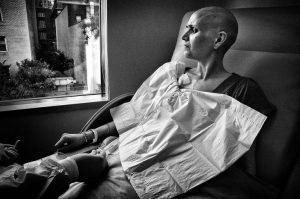Does Cancer Have A Smell
Cancer itself doesn’t have a distinct smell, but certain types of cancer can produce specific odors. For example, some people with advanced stages of cancer might develop a characteristic odor due to metabolic changes or infections associated with the disease. However, relying on smell alone is not a reliable method for diagnosing cancer, and any concerning symptoms should be evaluated by a healthcare professional.
The sense of smell is a powerful tool that humans rely on to navigate the world around them. It can evoke memories, influence emotions, and even alert us to potential dangers. But amidst the myriad of scents that permeate our daily lives, a question arises: can cancer be detected by smell? In this comprehensive guide, we delve into the fascinating intersection of cancer and olfaction, separating fact from fiction and exploring the implications for early detection and patient care.

Understanding the Human Sense of Smell
Before diving into the intricacies of disease odors, it’s essential to grasp the fundamentals of how humans perceive smell. The olfactory system, located in the nasal cavity, consists of specialized sensory cells that detect airborne molecules and transmit signals to the brain. These signals are then interpreted as distinct odors, ranging from pleasant fragrances to pungent stenches.
The Link Between Diseases and Odors
Exploring the Concept of Disease Odors
While it’s well-established that certain illnesses can manifest in characteristic odors, the notion of cancer having a discernible smell remains contentious. Nevertheless, anecdotal accounts and historical anecdotes have fueled speculation about the existence of a “cancer scent.”
The Role of Volatile Organic Compounds (VOCs)
One proposed mechanism behind the concept of disease odors involves the release of volatile organic compounds (VOCs) by cancer cells. These compounds, which can be detected in bodily fluids and breath, are byproducts of cellular metabolism and biochemical processes.
Research on Olfactory Detection of Diseases
In recent years, researchers have conducted studies to investigate the possibility of using scent detection as a diagnostic tool for various diseases, including cancer. While some promising findings have emerged, the practical applications of these findings remain limited.
Cancer and Its Odor: Separating Fact from Fiction
Dispelling the Myth: Can Cancer Have a Smell?
Despite widespread belief in the existence of a distinct “cancer odor,” scientific evidence to support this claim is lacking. The human sense of smell is highly subjective, and individual differences in olfactory perception can complicate attempts to identify specific disease odors.
Anecdotal Evidence vs. Scientific Studies
Many of the anecdotes about cancer odors are based on personal experiences or isolated cases. While these accounts may be compelling, they fall short of the rigorous standards required for scientific validation.
Factors Contributing to Foul Odors in Cancer Patients
It’s important to recognize that cancer itself may not produce odors detectable to the human nose. Instead, certain symptoms and side effects of cancer and its treatments, such as infections, necrosis, and metabolic changes, can result in malodorous compounds.
The Importance of Early Detection in Cancer Diagnosis
Highlighting the Significance of Early Screening
Early detection is crucial for improving cancer outcomes and increasing the likelihood of successful treatment. Recognizing the signs and symptoms of cancer, coupled with routine screening tests, can lead to earlier diagnosis and better prognoses.
Common Symptoms Associated with Different Types of Cancer
The signs of cancer can vary widely depending on the type and location of the disease. Some common symptoms include unexplained weight loss, persistent pain, changes in bowel or bladder habits, and unusual lumps or growths.
Role of Medical Imaging and Laboratory Tests
In addition to clinical evaluation and physical examinations, medical imaging techniques such as X-rays, CT scans, and MRI scans play a vital role in diagnosing cancer. Laboratory tests, including blood tests and biopsies, help confirm the presence of cancerous cells.

Challenges in Detecting Cancer Through Smell
Addressing the Limitations of Olfactory Diagnosis
While the idea of using smell as a diagnostic tool is intriguing, it faces significant challenges in practice. Olfactory perception is highly subjective and can be influenced by various factors, including age, gender, and environmental conditions.
Overlapping Odors with Other Health Conditions
Furthermore, many diseases and health conditions can produce similar or overlapping odors, making it difficult to attribute a specific scent solely to cancer. Respiratory infections, diabetes, and kidney disease are just a few examples of conditions that can alter body odor.
Subjectivity and Reliability Issues
The reliability of olfactory diagnosis is also a concern, as individual interpretations of scent can vary widely. What one person perceives as a suspicious odor may be indistinguishable or even pleasant to another.
Advances in Cancer Detection Technologies
Innovative Approaches to Early Cancer Detection
Despite the challenges associated with olfactory diagnosis, researchers are exploring innovative technologies to improve cancer detection rates. Electronic nose devices, inspired by the human olfactory system, are capable of detecting volatile compounds associated with cancer.
Development of Electronic Nose Devices
Electronic nose devices utilize sensor arrays to detect and analyze odors, offering a potential non-invasive and cost-effective approach to early cancer screening. These devices have shown promise in preliminary studies and clinical trials.
AI and Machine Learning in Disease Detection
Furthermore, advancements in artificial intelligence (AI) and machine learning hold the potential to enhance the accuracy and reliability of cancer detection. By analyzing complex datasets and patterns, AI algorithms can assist healthcare professionals in interpreting scent-based diagnostic information.
Psychological Impact of Associating Smell with Cancer
Examining the Psychological Ramifications
The association of smell with cancer can have profound psychological effects on patients and their loved ones. Stigmatization, fear, and anxiety may arise from the belief that cancer carries a distinct and detectable odor, exacerbating the emotional burden of the disease.
Stigmatization and Social Isolation
Individuals who perceive themselves as emitting a foul odor due to cancer may experience social ostracism and isolation. This stigma can lead to feelings of shame, embarrassment, and reluctance to seek medical attention or support.
Coping Strategies for Patients and Families
Healthcare providers and support networks need to address the psychosocial needs of cancer patients and their families. Open communication, empathy, and education about the realities of cancer can help dispel myths and reduce the stigma associated with the disease.
Conclusion
In conclusion, while the notion of cancer having a distinct smell persists in popular culture, scientific evidence to support this claim is lacking. Olfactory perception is highly subjective, and the complexities of disease odors make it challenging to reliably detect cancer through smell alone. However, advancements in technology and research offer hope for improving early cancer detection and patient outcomes in the future.
FAQs
Can cancer really be detected by smell?
While certain diseases may produce characteristic odors, there is no conclusive evidence to suggest that cancer has a distinct smell detectable to the human nose.
What are the common signs of cancer?
Common symptoms of cancer include unexplained weight loss, persistent pain, changes in bowel or bladder habits, and unusual lumps or growths.
Are there any specific odors associated with certain types of cancer?
While anecdotal accounts exist, scientific research has not identified specific odors reliably linked to particular types of cancer.
How reliable are electronic nose devices in detecting cancer?
Electronic nose devices show promise as non-invasive tools for early cancer detection, but further research is needed to validate their accuracy and reliability.
What can individuals do to support cancer patients?
Providing emotional support, advocating for regular screenings, and promoting awareness of cancer symptoms can help support individuals affected by cancer.

